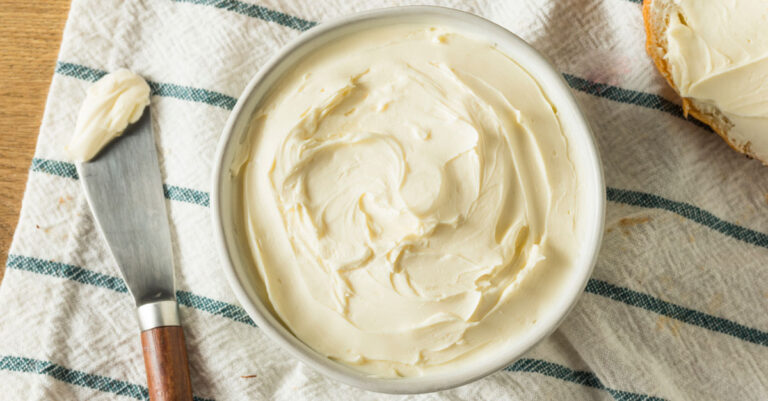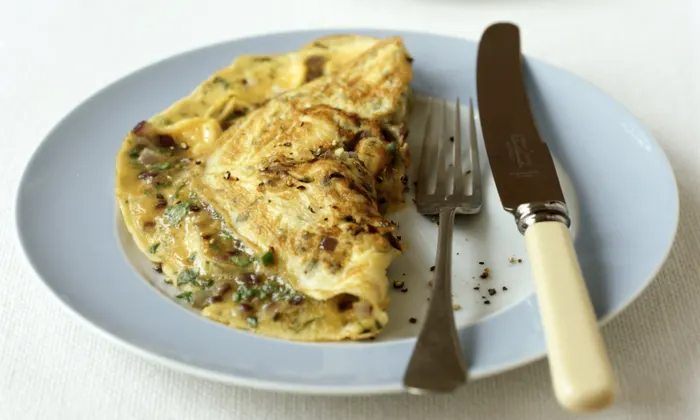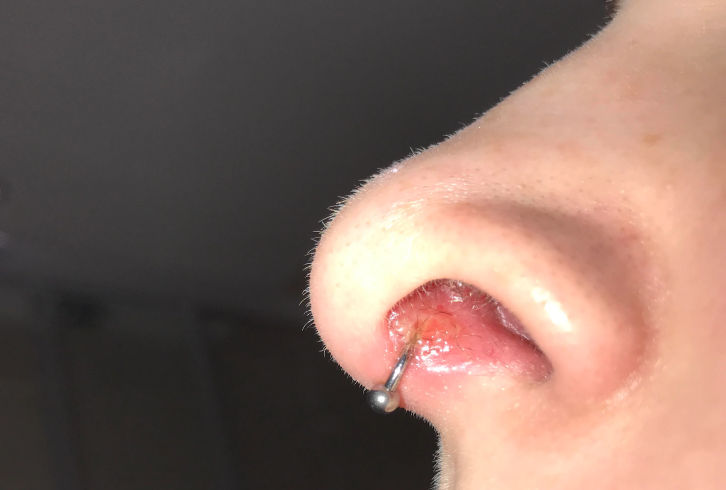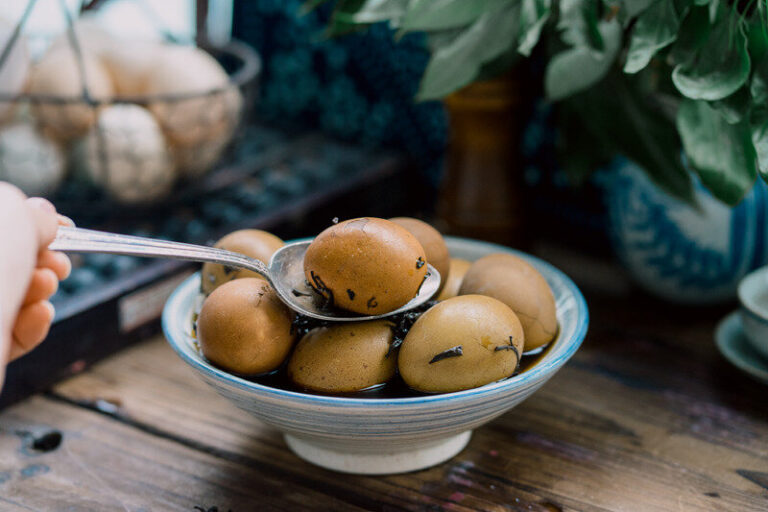Can I Eat Chicken After Tooth Extraction?
Yes, you can eat chicken after a tooth extraction but choose soft, boneless, and well-cooked options. Shred or chop the chicken for easy chewing. Avoid hot or cold extremes, and opt for lukewarm or room temperature. Remove bones and skin to make it easier on the healing site.
Stick to lightly seasoned or plain chicken to prevent irritation. Stay hydrated and incorporate a variety of soft, nutritious foods into your diet. Always follow your dentist’s recommendations for a smooth recovery. If you have concerns, consult your dentist for personalized advice based on your situation.
What are the Essential Dietary Guidelines for Optimal Recovery?

After getting a tooth pulled, eat soft, nutritious foods to help heal faster. Go for easy-to-digest choices to feel better during recovery
General Dietary Guidelines after Tooth Extraction
Soft and Gentle Foods: In the initial days after a tooth extraction, it’s crucial to focus on a diet that minimizes stress on the healing site. Opt for soft, easy-to-chew foods to prevent irritation or disruption of the blood clot.
Nutrient-Rich Choices: Despite the need for softer foods, prioritize nutrient-rich options. Foods high in vitamins, minerals, and protein contribute to the healing process and overall well-being.
Hydration: Proper hydration is essential for recovery. Consume plenty of water, but avoid using straws during the initial days, as the suction motion may disturb the blood clot.
Avoid Hard or Crunchy Foods: Steer clear of hard, crunchy, or sharp-edged foods that could potentially harm the extraction site. This includes nuts, chips, and other challenging textures.
Limit Sugary Foods: Excessive sugar intake can hinder the healing process and increase the risk of infection. Go for sugar-free or low-sugar alternatives when possible.
Smaller, Frequent Meals: Instead of large meals, consider smaller, more frequent meals throughout the day. This approach provides sustained energy without overwhelming the healing area.
Importance of Choosing Soft and Easily Digestible Foods
Minimizing Discomfort: Soft and easily digestible foods reduce the strain on your jaw and gums, minimizing discomfort during the initial stages of recovery.
Promoting Healing: Choosing foods that are gentle on the digestive system supports the body’s ability to absorb nutrients efficiently. This, in turn, aids in the healing process.
Preventing Irritation: Hard or difficult-to-chew foods can cause irritation to the extraction site, potentially leading to complications such as dry socket. Soft foods help mitigate this risk.
Reducing Chewing Strain: Since the act of chewing can exert pressure on the jaw, selecting softer options lessens the strain on the healing area, allowing for a more comfortable recovery.
Enhancing Nutrient Absorption: Soft foods often require less effort to chew and digest, facilitating better nutrient absorption. This is particularly important during the recovery period when the body requires additional support for healing.
Diverse Options: Soft does not mean bland. There is a wide variety of flavorful, soft foods, including soups, purees, and tender proteins, ensuring a diverse and enjoyable post-extraction diet.
What Are The Nutritional Benefits of Chicken?
Chicken is good for you because it has protein that helps muscles and vitamins like B6 for your body. It also gives you stuff like phosphorus for strong bones and selenium to keep you healthy.
The Nutritional Value of Chicken
Protein Richness: Chicken is an excellent source of high-quality protein, which is essential for the repair and regeneration of tissues, including the healing of the extraction site.
Vitamins and Minerals: Beyond protein, chicken contains vital nutrients such as B vitamins (particularly B6 and B12), niacin, phosphorus, and zinc. These contribute to overall health and can aid in the body’s healing mechanisms.
Low in Saturated Fat: Skinless, lean cuts of chicken are low in saturated fat. This makes chicken a heart-healthy protein choice, especially important during recovery when the body needs nutrients without excess fat intake.
Complete Amino Acid Profile: Chicken provides a complete amino acid profile, supporting various bodily functions, including immune function, which is crucial for preventing infection during the recovery period.
Hydration Support: Chicken also contains water, contributing to hydration, another essential factor in the healing process. Proper hydration helps maintain optimal bodily functions and supports overall well-being.
Protein Content and Its Role in Healing
Tissue Repair and Regeneration: Protein plays a fundamental role in repairing and regenerating tissues, making it a key component in the healing process after a tooth extraction. It contributes to the formation of collagen, essential for wound closure.
Immune System Support: Protein is vital for a robust immune system. During the recovery phase, a well-functioning immune system helps ward off infections, ensuring the extraction site heals without complications.
Reducing Inflammation: Proper protein intake can help manage inflammation, a common response after oral surgery. By supporting the body’s anti-inflammatory processes, protein aids in minimizing discomfort and promoting a more comfortable recovery.
Energy Provision: The body requires additional energy during the healing process, and protein provides a valuable source of energy. This is crucial for maintaining overall strength and vitality, especially when the appetite may be affected.
Muscle Preservation: Protein is essential for muscle health. Maintaining muscle mass is vital, as it prevents weakness and promotes overall physical well-being during recovery.
What Are The Risks of Eating Spicy Chicken Post-Extraction?
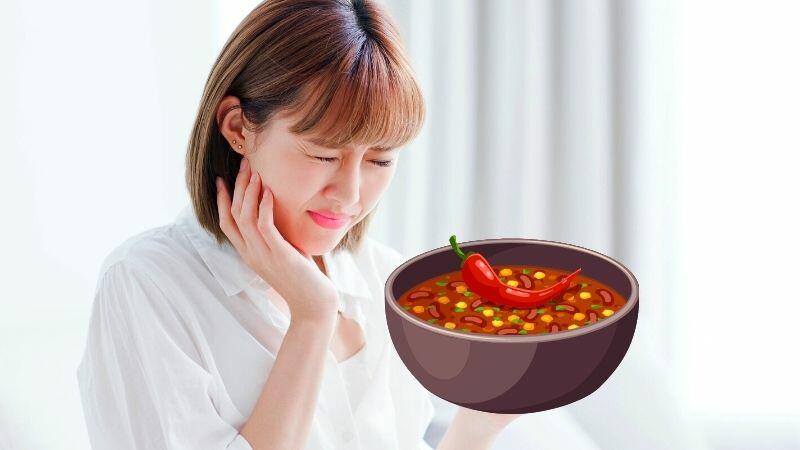
Eating spicy chicken post-extraction can pose certain risks during the initial stages of recovery.
Discomfort and Irritation: Spicy foods, especially those containing chili peppers or strong spices, can cause discomfort and irritation to the sensitive tissues at the extraction site. This discomfort may be exacerbated if the spices come into direct contact with the wound.
Increased Blood Flow: Spicy foods can lead to an increase in blood flow, which may result in heightened sensitivity and potential bleeding at the extraction site. This can interfere with the formation and stability of the blood clot necessary for proper healing.
Risk of Infection: Spicy foods may carry a higher risk of bacterial contamination, especially if they are not thoroughly cooked or if they contain ingredients that can introduce bacteria to the healing area. Infections can impede the recovery process.
Delayed Healing: Due to the potential for irritation and increased blood flow, consuming spicy foods may contribute to delayed healing. The added stress on the extraction site can hinder the natural progression of tissue repair.
Disruption of Comfortable Eating: During the initial days post-extraction, comfort is paramount. Spicy foods might make eating more challenging, potentially leading to a less-than-optimal nutritional intake during a crucial phase of recovery.
How to Manage Discomfort While Eating Chicken?
To make eating chicken more comfortable after a tooth extraction, choose softer preparations like shredded or poached chicken, and cut it into small, bite-sized pieces. Avoid spicy seasonings or strong sauces that might irritate the healing tissues.
Chew slowly and mindfully, using the opposite side of your mouth from the extraction site. Stay well-hydrated, and choose lukewarm or room-temperature foods to reduce sensitivity. If your dentist has prescribed pain medication, take it as directed to manage discomfort.
Following post-operative care guidelines is essential, and if you experience persistent discomfort, consult with your dentist for personalized advice and evaluation.
FAQ
What kind of meat can I eat after tooth extraction?
You can generally eat soft, tender meats like chicken, turkey, or fish. It’s crucial to avoid tough or chewy meats that may cause discomfort or disturb the healing process.
Can I eat a McChicken after tooth extraction?
While a McChicken is flavorful, it may not be the best choice immediately after extraction due to its crispy texture. Opt for softer chicken options to ensure a smoother recovery.
Can I eat chicken and noodles after tooth extraction?
Yes, you can eat chicken and noodles after a tooth extraction. Ensure the chicken is tender and the noodles are well-cooked to make them easier to chew and swallow.
When can I eat normally after tooth extraction?
You can gradually return to a normal diet as your comfort allows. Start with soft foods and progress to firmer textures as you heal, typically following your dentist’s post-operative guidelines.
When can I stop worrying about dry socket?
Concerns about dry socket decrease significantly after the initial few days. However, it’s essential to follow post-operative care instructions to minimize the risk during the entire healing period, typically one to two weeks.
What happens if food gets stuck after tooth extraction?
If food gets stuck, gently rinse your mouth with lukewarm saltwater to dislodge it. Avoid vigorous rinsing, and if the problem persists, consult your dentist to prevent potential complications.
How do you clean your mouth after a tooth extraction?
Clean your mouth gently by rinsing with a saltwater solution after 24 hours. Avoid direct contact with the extraction site and follow your dentist’s instructions for maintaining oral hygiene during recovery.
Can food touch the extraction site?
During the initial days, it’s advisable to avoid direct contact between food and the extraction site to prevent irritation and disruption of the blood clot. Stick to softer foods to minimize any potential discomfort.
How do you sleep the first night after a tooth extraction?
Sleep with your head elevated using an extra pillow to reduce swelling. Avoid sleeping on the side of the extraction to prevent unnecessary pressure on the healing area.
Final words
In summary, enjoying chicken after a tooth extraction is possible, but it’s crucial to be mindful of your comfort and follow a gradual reintroduction. Go for soft, well-cooked options to minimize any potential discomfort. Remember to adhere to your dentist’s post-operative guidelines, including dietary recommendations, for a smoother recovery. While relishing your favorite foods, prioritize your healing process by adopting a cautious and informed approach. If in doubt, consult your dentist for personalized advice, ensuring a balanced and comfortable journey back to your regular diet post-tooth extraction.


